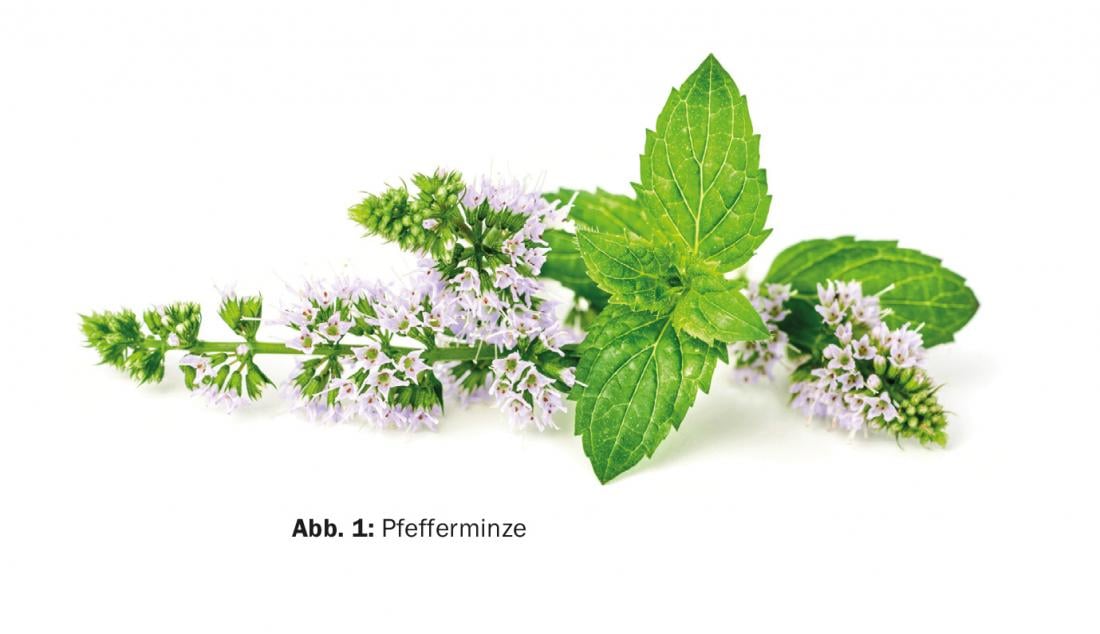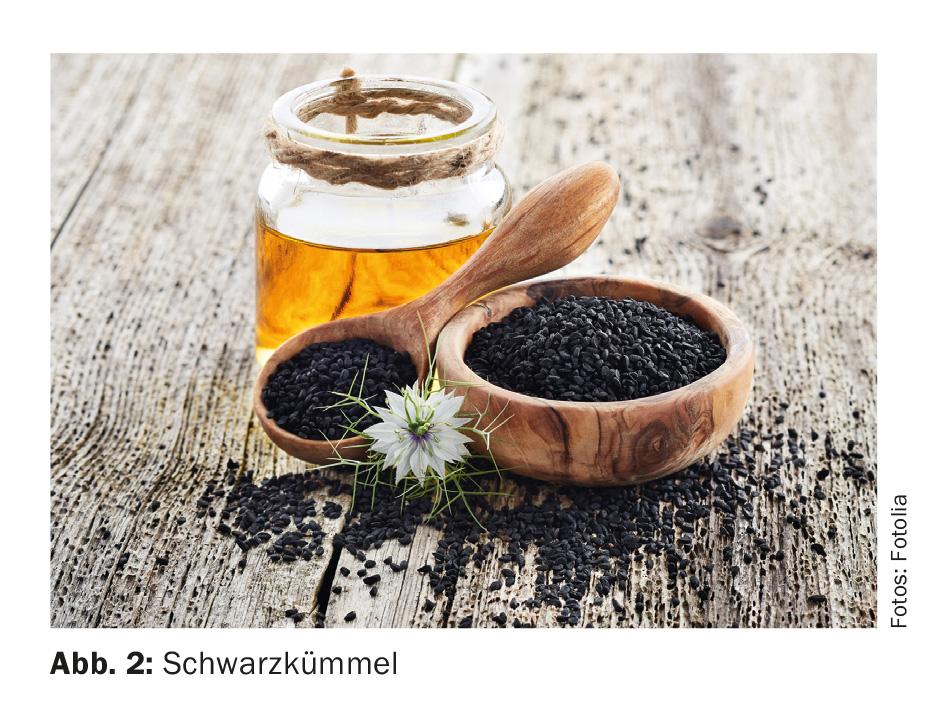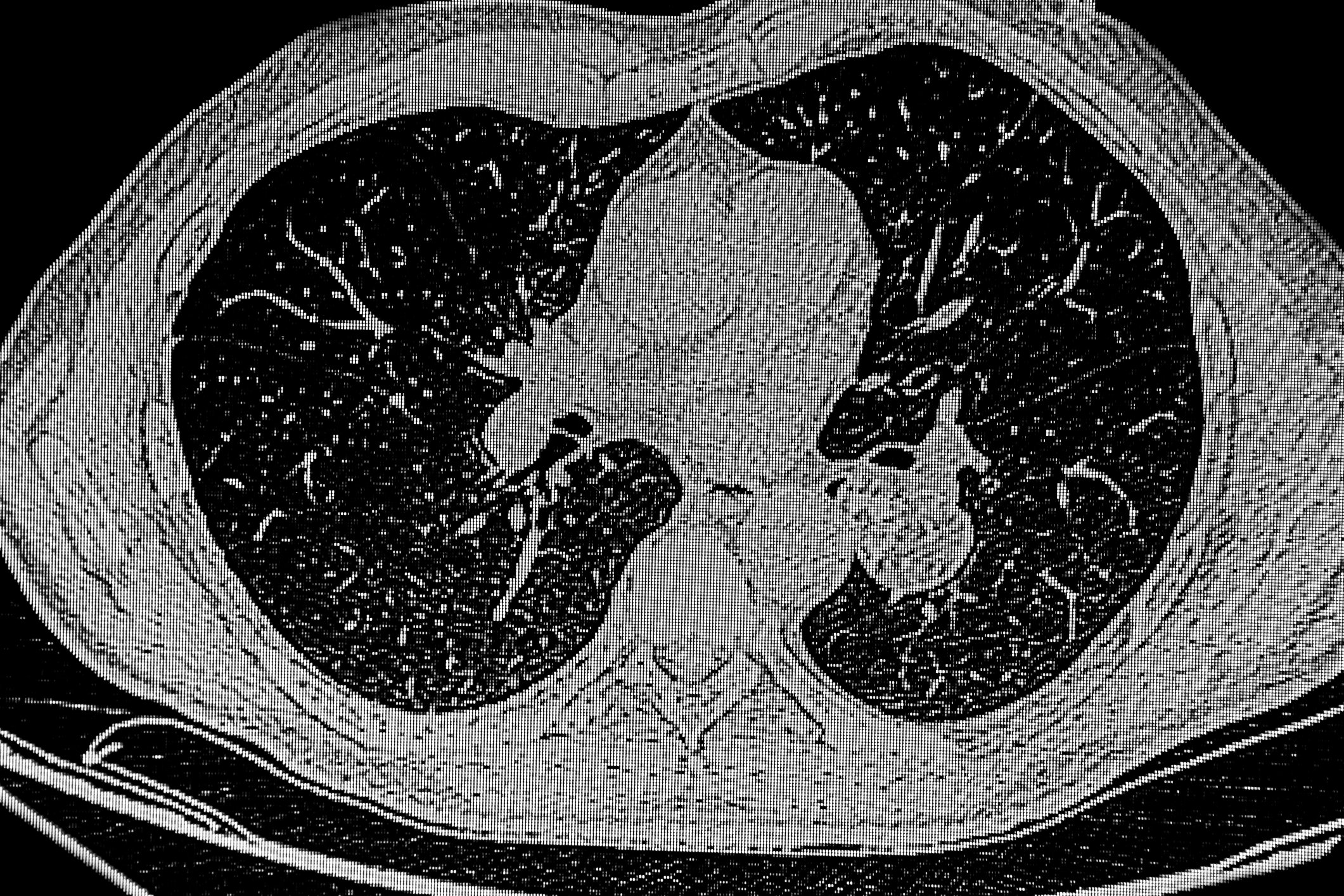Peppermint and caraway oils are proven natural remedies for gastrointestinal complaints. Now, more and more clinical studies as well as meta-analyses show that peppermint oil in particular has a symptom-reducing effect, for example, on irritable bowel syndrome or in functional dyspepsia.
The main active ingredient in peppermint oil is menthol. This is known to have a cooling effect on the skin and has spasmolytic, anti-inflammatory and antibacterial effects inside the body, for example inside the intestines. However, the essential oil must be packed in an enteric-coated form in order to reach the site of action, namely the small and large intestine, in an active form [1]. If this does not happen, the menthol is released in the upper digestive tract, where it has a soothing effect on the lower esophageal sphincter, for example. As a result, reflux from the stomach, heartburn and “heartburn” occur [1]. Finally, these are the most common side effects to be expected from peppermint oil use for gastrointestinal problems [1].
Peppermint oil physiology
Peppermint oil interacts with calcium channels in the intestine, where it prevents calcium influx into smooth muscle cells. The bowel relaxes, which also reduces the movements and associated pain symptoms [1]. In addition, peppermint oil (menthol) is able to influence cytokines and inflammatory signaling pathways, which explains its anti-inflammatory and antibacterial mode of action. Peppermint oil is effective against e.g. Helicobacter pylori, Salmonella enteritidis as well as Staphylococcus aureus, as studies have shown [1].
Efficacy in irritable bowel syndrome
About 5-20% of the world’s population suffers from functional bowel disorders, such as irritable bowel syndrome. Clinically, the term “irritable bowel syndrome” refers to recurrent abdominal discomfort that usually manifests as pain or discomfort. In addition, the symptoms must have occurred on at least three days per month during a period of three months in order to be able to speak of irritable bowel syndrome after ruling out all possible differential diagnoses [1]. Very often, one or more of the following symptoms also occur:
- a decrease in pain after defecation,
- Changes in stool frequency and/or
- a change in stool consistency [1].
Due to its not infrequent association with psychological symptoms, such as anxiety or depression, irritable bowel syndrome belongs to the more complex clinical pictures, the therapy of which is by no means trivial [1].
Peppermint oil has been discussed for years as an effective and well-tolerated natural remedy for patients with irritable bowel syndrome. The most convincing evidence of efficacy to date was provided by a meta-analysis by Khanna and colleagues [2]. Accordingly, five randomized placebo-controlled trials showed an overall improvement in irritable bowel symptoms with the use of peppermint oil (RR = 2.23; 95% CI: 1.78-2.81). In addition, abdominal pain in particular improved among study participants (RR = 2.14; 95% CI: 1.64-2.79) [2]. Based on this good study situation, the American College of Gastroenterology Task Force also concluded that peppermint oil was superior to placebo-only treatment in irritable bowel syndrome [3].
Conclusion: peppermint oil should be considered as a treatment option for irritable bowel syndrome. This statement is based primarily on the well-documented short-term efficacy of the therapy and the associated only minor side effects, such as heartburn [1].
Efficacy in functional dyspepsia
The diagnosis of “functional dyspepsia” is often quite frustrating for both sides, physician and patient. Symptoms can be very heterogeneous, ranging from pain to bloating to increased gas formation, and it often takes years before the diagnosis can even be made. The therapy of this clinical picture is just as difficult, because there is still no real standard of therapy [1]. However, studies showed that a combination of peppermint oil and caraway oil was able to relieve symptoms in functional dyspepsia – especially pain and discomfort [1]. Possibly, this effect is caused by the antifoaming action of the combination of peppermint and caraway oils [4].
Conclusion
Peppermint oil had shown some promising effects in gastroenterology in previous studies. Accordingly, it appears to be a safe and well-tolerated therapeutic option, especially for patients with irritable bowel syndrome or functional dyspepsia [1]. Peppermint oil, or menthol, has its main effect on symptoms caused by motility disorders, such as pain or discomfort. Peppermint oil promotes relaxation of the gastrointestinal tract, thus favoring its emptying.
For patients with functional dyspepsia, studies have shown that peppermint oil brings additional relief due to its anti-emetic effect. In combination with caraway oil, the formation of foam in the gastrointestinal tract can also be noticeably reduced. According to current studies, the essential oils from peppermint and caraway are therefore good candidates for the treatment of functional intestinal disorders such as irritable bowel syndrome or functional dyspepsia.
Literature:
- Shams R, Oldfield EC, et al: Peppermint Oil: Clinical Uses in the Treatment of Gastrointestinal Diseases. JSM Gastroenterol Hepatol 2015; 3(1): 1036.
- Khanna R, MacDonald JK, Levesque BG: Peppermint oil for the treatment of irritable bowel syndrome: a systematic review and metaanalysis. J Clin Gastroenterol 2014; 48: 505-512.
- Ford AC, Moayyedi P, et al: American College of Gastroenterology monograph on the management of irritable bowel syndrome and chronic idiopathic constipation. Am J Gastroenterol 2014; 109 (1): 2-26.
- Koch E, Brauch S, et al: Z Phytother 2015; 36 (1): 34-35 (Poster P11) DOI: 10.1055/s-0035-1565972.
HAUSARZT PRAXIS 2018; 13(9): 40-41













